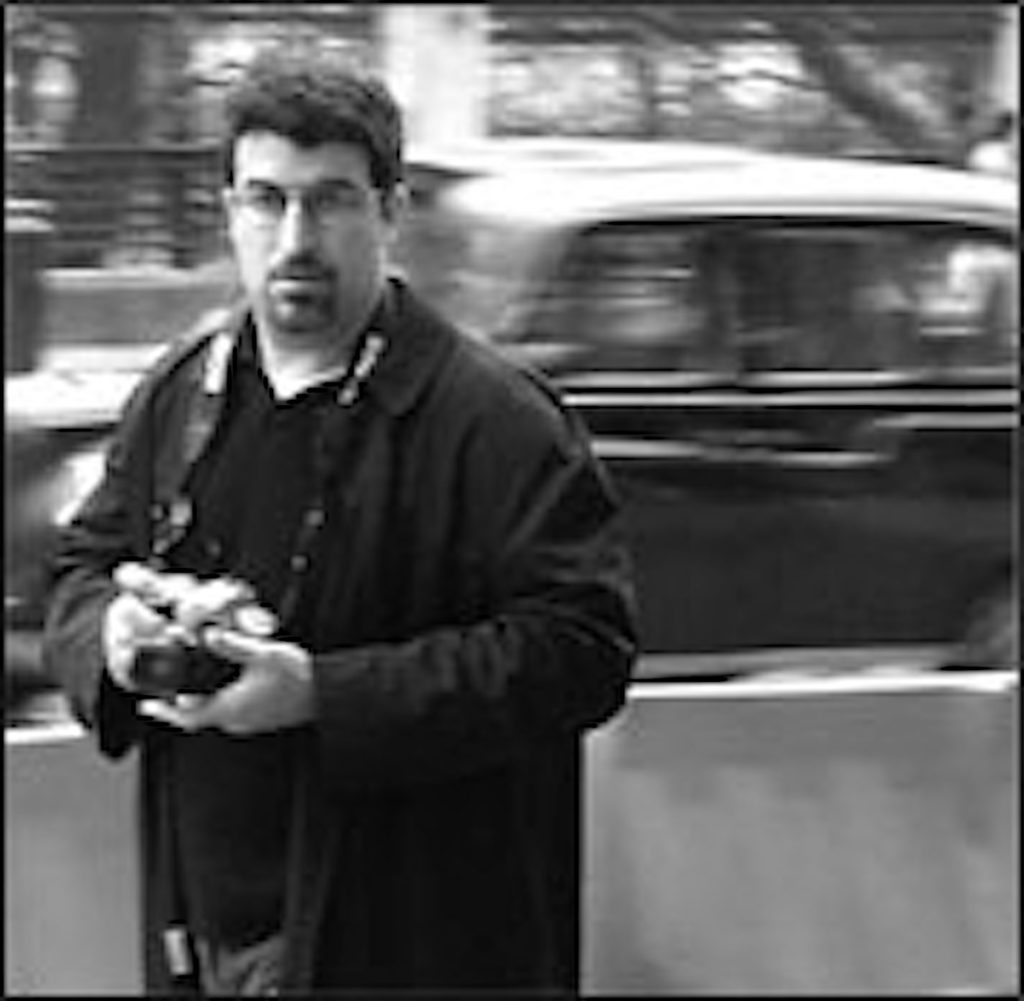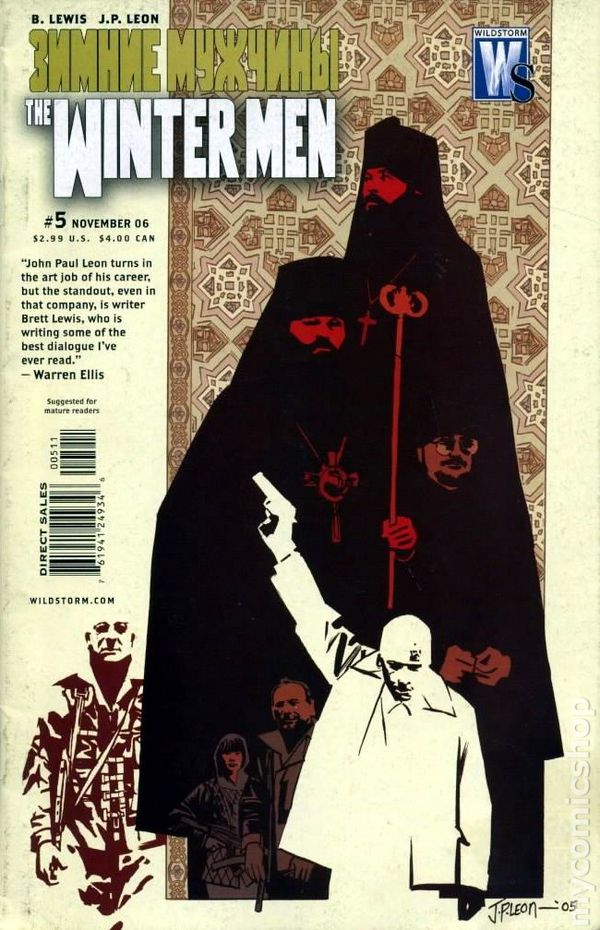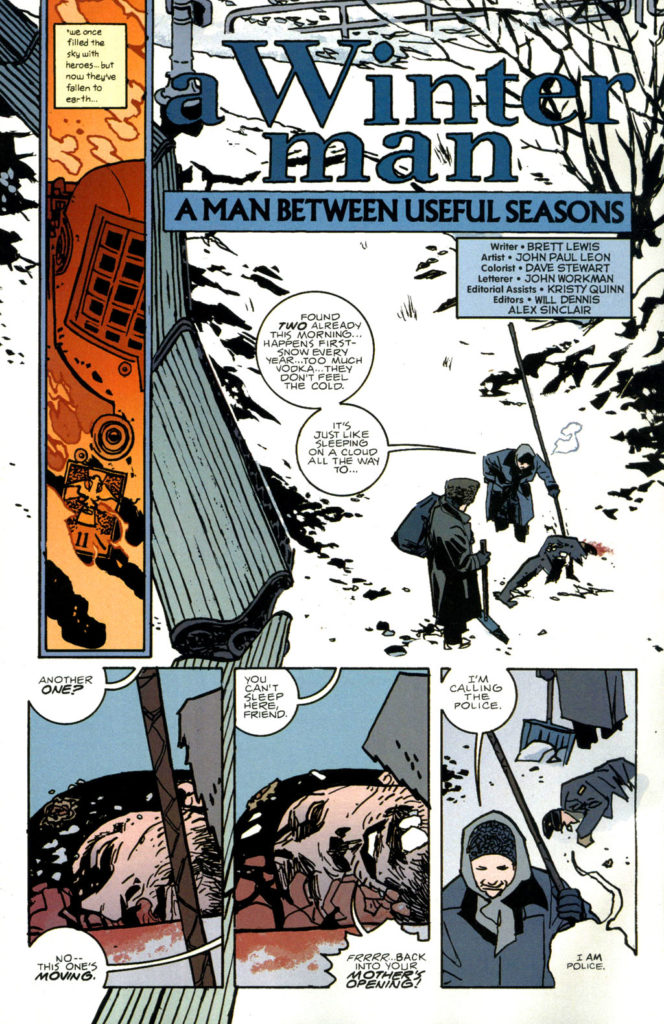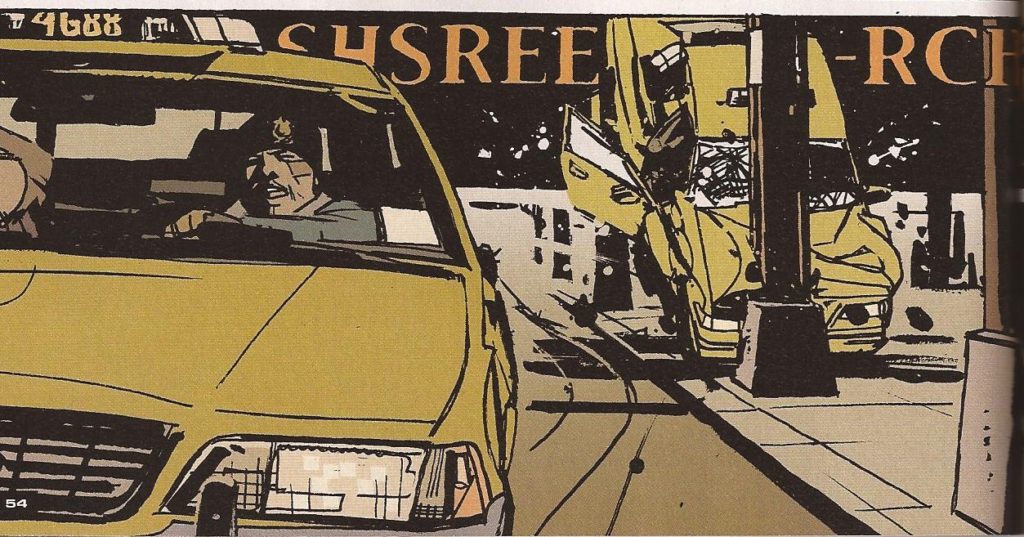Moments with John Paul Leon – Fourth
We all change, and I knew it was JP’s time at SVA that molded him and made him into a different artist. I was scouring that comic book at the resort and afterward, trying to find evidence of JP’s hand.
I eventually found something in his new style that was JP’s. When I got back to Miami, I told everybody he had made it. For me, it was big news.
I wanted to contact him, but he was in New York, and I was still in Miami. I don’t remember really trying. I was all about night clubs in those days and meeting more and more girls, and this was happening as I started to lose interest in getting into the comic book field. About a year later, I firmly decided I was not going to do the comic book thing. I was going to go back to school and get a Master of Fine Arts in painting.
When I went to San Francisco, my life changed again, further getting me even farther from my past, which is the way I wanted it at the time. I was, at times, cynical. These were traits I had gotten from my step-dad — almost unconsciously — and they were still with me, even though I had not seen him in all this time. Even so, I would think about him. During my comic book-making days in Miami, I had made a five-page story devoted to him and his own dream of making it in music. I had always wanted to show JP my tiny story titled “Soul’s Sojourn,” especially since he knew the man, but I never even brought it up with him.
In San Francisco, I would check out comics for inspiration. I was making artist books, and my pages were quite naturally littered with crazy comic book sequences and word balloons. Those were the days when I discovered Charles Burns and David Sala at Virgin Records.
It was at Virgin Records when I found JP’s latest accomplishments. He had done a maxi-series called Earth X, and it was celebrated in those days. I noticed that his style had changed once again, and again I found myself scouring it to find signs of the old JP art. I think I read somewhere that he was still in New York. He had never left, just like I didn’t leave San Francisco when I was done with grad school.
A strange thing happened to me during my time in San Francisco. My brother wanted to talk to me. He was in Miami, teaching middle school, and he had gotten to this point in the school year where he had to call the parents of certain students who were not doing too well. When he called this one father, they spoke about his son, and then the man asked Alex if he knew who he was talking to. Alex told me he suddenly got a weird feeling, because the clue was evident in the kid’s last name and now in this man’s voice. It was our stepdad. By some crazy coincidence, my brother was teaching our stepdad’s son.
A little later, Alex was on the phone again, and he told me that our stepdad had asked for my telephone number in San Francisco. He gave it to him, but he told me he should have asked me first. I told him there was nothing to worry about, that I would love to hear from him again. But I never did get that phone call. I wondered later if I should have asked Alex for his number.
But my time in San Francisco would come to an end when I made the decision and left the country to teach English in Asia, where I spent almost five years. When I was finally returning to the US where my fiance and I were planning to get married, I was thinking about JP one night when we were visiting a PC Room in Korea. I was wondering how he was doing. I was looking him up and found his newest accomplishments. He was working on a personal project called the Winter Men. He had a website, and it had an email contact box. So, I finally contacted him after losing more than twelve years of just letting the time go. He was excited to hear from me and was happy I was returning to Miami. He had moved back in recent times and was married himself.
My wife and I were not long in Miami. But I got to see JP a few times. We were like two kids, not talking much about serious life matters like mortgages and the downsides of day-to-day responsibilities. It was all just comic books. It was punctuated with a side topic of a book or artist not necessarily related to comics, but we were going into it deep. The first time, our talk went from Alex Toth to Chris Ware. He was lamenting the problems he was running into in finishing his own project, Winter Men.
In our talks, we went over so much. I was getting back into comics — but this time, into the indie comics. JP’s interests had not really changed, but though we had different tastes, we still had the old points of connection. He knew some of the creators I was talking about, and he let me know which ones he admired, and which ones he didn’t really like.
Of the Hernandez Brothers, he liked Jaime, but I could never get him to like Gilbert, for example. He couldn’t read a Daniel Clowes story because he simply could not get into the art. I used to dislike Clowes’s style too, I admitted to him, but I had grown to like it. I never got to change his mind about him, but I did get him to read the four-page story, “Art School Confidential,” and he thought it was very good, very funny. Naturally, because we had both been to art school, and we were thoroughly familiar with the art school shortcomings that Clowes lambasted in that short piece.
When I moved back to California, he was still going through his first bout with cancer. He would go to conventions in uncomfortable conditions. He eventually went into remission! He was working more. Making a lot of commissions, drawing stories here and there. He told me once about a Sgt. Fury thing he was working on, but he was admitting how he couldn’t get into it. He was not feeling it. A few years later, he told me he was doing a story in Detective Comics. And he was excited about this one, because he was doing Batman! JP was still a DC guy after all these years, and I think Batman was as high as it could ever get for him. He would complain about how Marvel always called at the last minute, giving you little time or freedom to get an assignment done right.
When I was reading Ex Machina in trade paperbacks from the library, I found two issues drawn by JP. It was interesting catching his interpretation of the characters. A different artist on a regular series usually jars, and I have to admit it did feel different. It wasn’t like the regular characters drawn by the regular artist. But I studied those pages. JP was an artist that placed an extraordinary amount of work into every panel. He researched office interiors and cityscapes, as well as fashion and hairstyles. He went over page design and layout. I would call it composition, and I was enamored with those ideas about placing all the pieces of a picture in a certain place for the greatest effect. It was what drew me to Alex Toth, after JP had told me about his love for Toth’s work. But JP used to call that design. It was drawing. It was about the line. And it was about the page.
I had heard of Toth before JP enlightened me about his mastery. It was one of those names in the background that had caused a bit of curiosity in me when I found the name in comics of the 1980s, but not enough to pursue it. JP put me on my own Toth quest, and I slowly started to get it. For me, Toth was always about composition. His forms were solid, but his compositions were stellar. I would tell that to JP, as I asked him if he knew about this story or that one. JP loved the classic “Crushed Gardenia” story. I told him my favorites were the airplane stories from the 1950s, along with some of the later work when Toth was working with a marker and not a dip pen or brush.
During one of our early conversations, I told him what I now thought about Steve Ditko, and he couldn’t believe it. I could sense the broad smile on the other end of the line as he said, “I’m really shocked. I remember when you wanted to kill that guy. You said how could this guy ever work for comics?” I didn’t know how else to respond at the time, giving my only defense: “I now have my eyes open, and Ditko was that idiosyncratic genius!” Eventually, I would get into the Charlton Comics crew of greats, along with Ditko. I wanted to ask JP what he thought about Pat Boyette or Pete Morisi. I think I did mention Tom Sutton to him once, because we both hated his work on Grimjack. Sutton, for me, was another turnaround.
Toward the end, I was expressing my renewed interest in Joe Kubert, focusing on the warmth of his line work. There was a story that the first class at the Kubert School had told of witnessing Kubert inking with both hands, with extra brushes and pens between fingers, behind ears. JP wanted to know how that was even possible. I told him I was chalking that story up to Kubert probably showing off in front of the kids. JP had met Kubert at least once, when Kubert came up to him at a convention and said he really dug JP’s work in Winter Men. He told him to keep it up. JP stood straight up and said, “Yes sir!”



